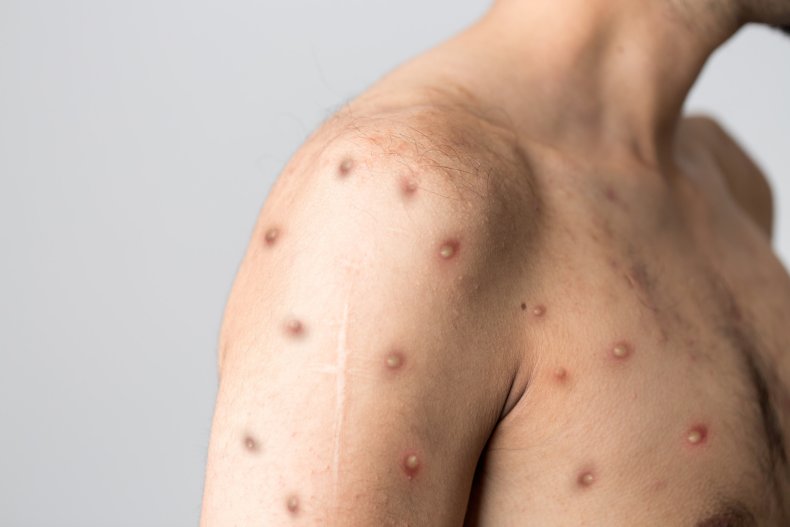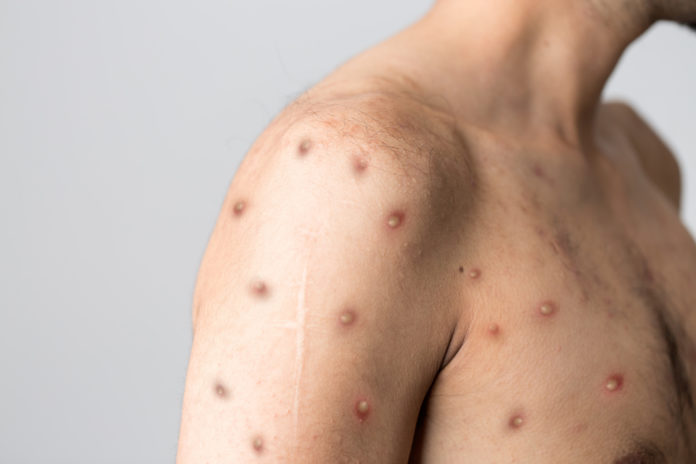A woman told a doctor in Spain that she didn’t believe she could catch monkeypox from an infected man next to her, as she’s “not gay.”
In a Twitter thread, tweets from Dr. Arturo M Henriques have been reposted and gone viral.
The doctor had been riding the metro in Madrid when a man came on “completely riddled” with monkeypox lesions, including on his hands.
“I see the situation and I also see the people around me as if nothing will happen,” the doctor said on Twitter.
Monkeypox, Spain: Dr tells of spotting this monkeypox infected on the underground train and telling them to isolate immediately: they responded saying they don’t have to as their Dr told them that, and that monkeypox is gay only pic.twitter.com/j7kICZi7jF
— Chris Turnbull (@EnemyInAState) July 31, 2022
As of August 1, there have been 23,276 confirmed cases of monkeypox across the globe. A high proportion are concentrated among men who have sex with men. However, the viral disease is not exclusive to this community and anybody can catch the virus after being in close contact with an infected person.
Henriques approached the man to ask him what he was doing on the subway, as his lesions were highly contagious.
The man confirmed that he did indeed have the virus. However, he claimed his doctor had just advised him to wear a mask, rather than to isolate.
Monkeypox mainly spreads through direct, physical contact with an infected person. The lesions that an infected person develops are highly contagious when touched. Blister fluids from the rash can also cause infections.
“I tell him that the injuries he has all over his body are what are most contagious. That I am a doctor and that he possibly did not understand all the indications of his family doctor…to which he told me he will not touch the balls…” the doctor tweeted.
Henriques then turned to the woman who was sitting next to the man and asked her whether she was scared to get sick with monkeypox, to which she replied: “How am I going to [get] it if I’m not gay?”
The woman then said that the government, are advising the “gays […] to take care of themselves.” Henriques then got off the subway.
A high proportion monkeypox cases have affected the gay community and a stigma has attached itself to the virus, despite experts stressing that it is “not a gay disease.” The World Health Organization has reiterated this point as the virus continues to spread.
Colin Quinn is president of communities at Included Health—a business that advocates for better healthcare within the LGBTQ+ community. He told Newsweek that being part of the LGBTQ+ community himself, he has noticed the stigma really starting to set in.

Berkay Ataseven/Getty
“Just a real life example. I was walking with my partner yesterday, on the streets of New York in what I thought was a very safe and friendly neighbourhood,” he said. “And some person, just a random person on the street started yelling at the both of us to get out of his way and I don’t want your monkeypox. Don’t touch me. Don’t come near me, type of thing.”
“So it’s like, you can see the stigma is already starting to set in and why that’s so incredibly important that our public health officials, our politicians in our community, health centres all come together to ensure that we’re being really thoughtful about how we message and how we not only support the community that it is disproportionately impacting but also letting others know that there are risks.
“Many people have said this is not a gay disease. It’s not a sexually transmitted virus or disease. There’s nothing inherent in the biology or the virus that’s limited to men or gay men.”
Quinn said that the virus continues to spread through “tight knit social groups,” and it “clearly does not discriminate.”
“It is already spreading beyond the gay and bisexual or broader LGBTQ+ community. So it’s for those reasons that it’s incredibly important that we learn from our past and our history,” he said. “I’ve already said we’ve got our learnings in the playbook from HIV/AIDS, and the lack of core messaging that happened there that created so much stigma… [We need] to really learn from that.”








